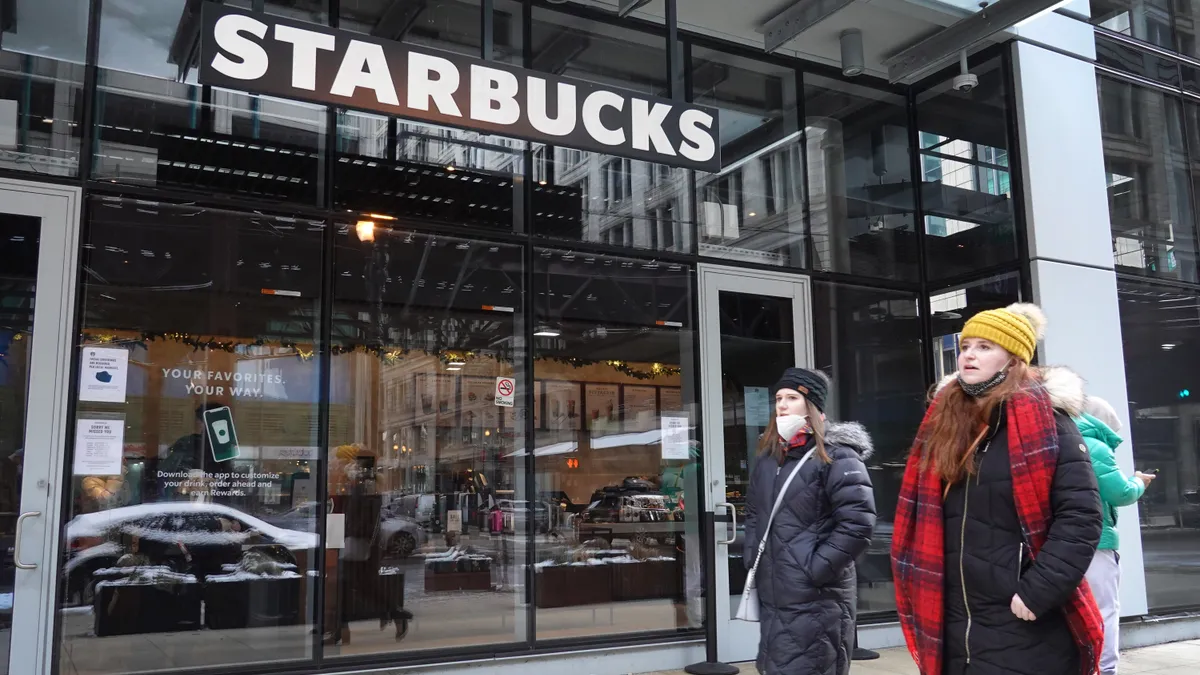Dive Brief:
- The Supreme Court held Thursday that a lower court erred in granting the National Labor Relations Board’s request for a preliminary injunction ordering Starbucks to reinstate seven fired employees.
- The case involved a group of Tennessee Starbucks employees who invited a local TV news crew after hours to their Memphis store in 2022 to promote a unionizing effort. Starbucks fired multiple employees involved with the event for violating company policy.
- When considering a National Labor Relations Board request for a preliminary injunction, the justices held that federal district courts must apply the traditional four-factor test established in Winter v. Natural Resources Defense Council (2008).
Dive Insight:
The Supreme Court’s decision in Starbucks v. McKinney deals a blow to labor unions and means lower courts must consider more factors before deciding to give fired workers their jobs back.
The union claimed that Starbucks unlawfully interfered with the employees’ right to unionize and committed an unfair labor practice in discriminating against union supporters at its Memphis store. The NLRB had agreed and sought to get the workers reinstated.
Writing for the 9-0 court, Justice Clarence Thomas explained that the NLRB had to first show it was likely to succeed on the merits; that the employees would suffer irreparable harm without the injunction; that the balance of equities tipped in the employees’ favor; and that an injunction was in the public interest.
Without meeting all four factors, the court concluded that the NLRB was not entitled to an injunction in the case.
An injunction is one of the labor board’s most effective ways to prevent companies from stifling union activity. As a practical matter, the court’s ruling appears to make these much more difficult for the agency to obtain. The district court had applied a reasonable cause standard that the justices deemed was too lenient. Thomas wrote that under a reasonable cause standard an injunction could be granted in almost any case.
Justice Ketanji Brown Jackson concurred in the judgment but dissented in part to note that Congress left the resolution of labor disputes to the NLRB rather than the courts. She said the board's legal interpretations are to be given “considerable deference.”










